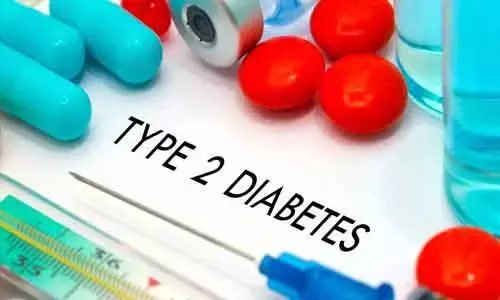- Home
- Medical news & Guidelines
- Anesthesiology
- Cardiology and CTVS
- Critical Care
- Dentistry
- Dermatology
- Diabetes and Endocrinology
- ENT
- Gastroenterology
- Medicine
- Nephrology
- Neurology
- Obstretics-Gynaecology
- Oncology
- Ophthalmology
- Orthopaedics
- Pediatrics-Neonatology
- Psychiatry
- Pulmonology
- Radiology
- Surgery
- Urology
- Laboratory Medicine
- Diet
- Nursing
- Paramedical
- Physiotherapy
- Health news
- Fact Check
- Bone Health Fact Check
- Brain Health Fact Check
- Cancer Related Fact Check
- Child Care Fact Check
- Dental and oral health fact check
- Diabetes and metabolic health fact check
- Diet and Nutrition Fact Check
- Eye and ENT Care Fact Check
- Fitness fact check
- Gut health fact check
- Heart health fact check
- Kidney health fact check
- Medical education fact check
- Men's health fact check
- Respiratory fact check
- Skin and hair care fact check
- Vaccine and Immunization fact check
- Women's health fact check
- AYUSH
- State News
- Andaman and Nicobar Islands
- Andhra Pradesh
- Arunachal Pradesh
- Assam
- Bihar
- Chandigarh
- Chattisgarh
- Dadra and Nagar Haveli
- Daman and Diu
- Delhi
- Goa
- Gujarat
- Haryana
- Himachal Pradesh
- Jammu & Kashmir
- Jharkhand
- Karnataka
- Kerala
- Ladakh
- Lakshadweep
- Madhya Pradesh
- Maharashtra
- Manipur
- Meghalaya
- Mizoram
- Nagaland
- Odisha
- Puducherry
- Punjab
- Rajasthan
- Sikkim
- Tamil Nadu
- Telangana
- Tripura
- Uttar Pradesh
- Uttrakhand
- West Bengal
- Medical Education
- Industry
Blood sugar variations in diabetes may increase risk of heart failure

Type 2 Diabetes Mellitus (T2DM) is associated with high morbidity and mortality due to Heart Failure (HF).
Researchers have found in a recent study that substantial changes and long-term variability in blood sugar and HbA1c were each independently associated with risk of incident Heart Failure among patients with T2DM.
Published in the journal "Diabetes Care" 2020, the study was carried out as the secondary analysis of the famous ACCORD trial. Researchers in the study evaluated the association between long-term change and variability in blood sugar with risk of heart failure (HF) among patients with T2DM.
Also read: Metformin First Line Therapy For Diabetes Patients At Low CVD Risk: Meta-Analysis
Patients in the glycaemic arm of the ACCORD trial were included in the study. Among the patients who enrolled, variability of HbA1c was assessed from stabilization following enrollment (8 months), to 3 years of follow up. During this period assessment was done by measuring average successive variability which is the absolute difference between successive values, coefficient of variation, and standard deviation. Participants with heart failure at baseline or within 3 years of enrollment were excluded from the study. Adjusted Cox models were used to evaluate the association of percent change from baseline to 3 years of follow-up and variability in HbA1c and blood sugar over the first 3 years of enrollment and subsequent risk of HF.
Also read: Passive Stretching Of Legs May Help Prevent CVD And Diabetes
The study included 8576 patients. The key points of the study were:
• Over a median follow-up of 6.4 years from the end of variability measurements at year 3(three), 388 patients had an incident HF hospitalization.
• Substantial changes in blood sugar and HbA1c were significantly associated with higher risk of heart failure.
• Greater long-term variability in HbA1c was significantly associated with higher risk of HF independent of baseline risk factors and interval changes in cardio-metabolic parameters.
• Consistent patterns of association were observed with use of alternative measures of blood sugar variability.
Thus, the researchers concluded that Substantial long-term changes and variability in blood sugar and HbA1c were independently associated with risk of HF among patients with T2DM.
The current article is published in the journal Diabetes Care which is a part of the American Diabetes Association.
To read the study, click the following link: https://doi.org/10.2337/dc19-2541
BDS, MDS
Dr.Niharika Harsha B (BDS,MDS) completed her BDS from Govt Dental College, Hyderabad and MDS from Dr.NTR University of health sciences(Now Kaloji Rao University). She has 4 years of private dental practice and worked for 2 years as Consultant Oral Radiologist at a Dental Imaging Centre in Hyderabad. She worked as Research Assistant and scientific writer in the development of Oral Anti cancer screening device with her seniors. She has a deep intriguing wish in writing highly engaging, captivating and informative medical content for a wider audience. She can be contacted at editorial@medicaldialogues.in.
Dr Kamal Kant Kohli-MBBS, DTCD- a chest specialist with more than 30 years of practice and a flair for writing clinical articles, Dr Kamal Kant Kohli joined Medical Dialogues as a Chief Editor of Medical News. Besides writing articles, as an editor, he proofreads and verifies all the medical content published on Medical Dialogues including those coming from journals, studies,medical conferences,guidelines etc. Email: drkohli@medicaldialogues.in. Contact no. 011-43720751


